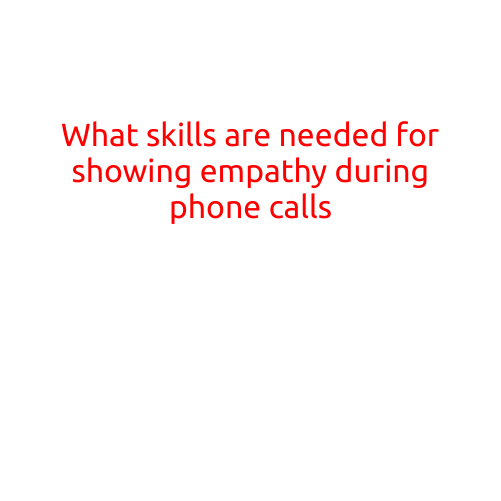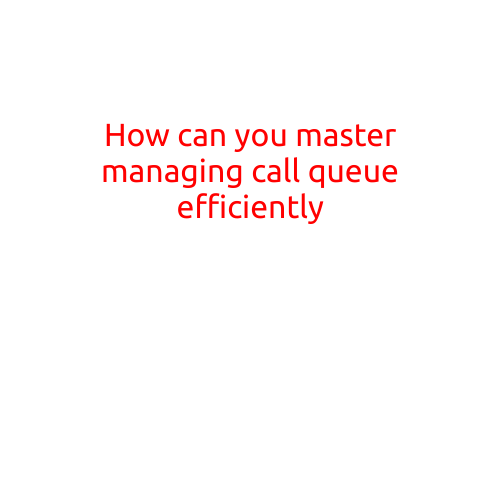
What Skills are Needed for Showing Empathy during Phone Calls
Effective communication is crucial in building strong relationships, whether personal or professional. One crucial aspect of effective communication is showing empathy, which is essential in phone calls, especially when dealing with sensitive or critical situations. Calling someone to deliver bad news, resolve a conflict, or offer support requires a level of emotional intelligence and empathy. In this article, we will explore the skills needed to show empathy during phone calls.
1. Active Listening
The foundation of empathy is active listening. It means paying attention to what the other person is saying, both verbally and non-verbally. Listen attentively to their concerns, emotions, and story without interrupting or judging. This helps to understand their perspective and show that you value their thoughts and feelings.
2. Empathetic Awareness
Developing empathetic awareness is crucial in phone calls. This involves understanding and acknowledging the other person’s emotions. Put yourself in their shoes and imagine how they would feel in a similar situation. For example, if someone is sharing their grief over a loss, acknowledge their pain and show understanding.
3. Non-Verbal Cues
Non-verbal cues play a significant role in phone calls, even though the other person can’t see you. Use positive and supportive tone, pitch, and pace to convey empathy. Speak calmly, slowly, and clearly, and avoid filler words like “um” or “ah.” These cues can help the other person feel understood and comforted.
4. Open-Ended Questions
Open-ended questions help to encourage the other person to share more about their thoughts and feelings. Instead of asking yes or no questions, ask questions that begin with what, how, or why. This helps to create a space for deeper conversation and understanding.
5. Validation
Validation is a powerful tool in showing empathy. Acknowledge the other person’s emotions and experiences, even if you don’t fully understand or agree. Use statements like “I can imagine how that would feel” or “That sounds really tough.” Validation helps the other person feel heard and understood.
6. Emotional Intelligence
Emotional intelligence (EI) is the ability to recognize and manage your emotions and those of others. Developing EI helps you to stay calm under pressure, remain empathetic, and respond appropriately to the other person’s emotions.
7. Patience
Phone calls can be challenging, especially when dealing with sensitive or emotional topics. Practicing patience helps you to stay focused and composed, allowing you to respond empathetically and thoughtfully.
8. Positive Body Language
Even though you can’t see the other person, your tone and language can still convey positive body language. Speak confidently, use a warm and friendly tone, and avoid apologetic language like “I’m so sorry” or “I’m not sure.”
9. Clarification
Clarification is essential in phone calls to ensure you understand the other person’s concerns and emotions. Ask questions to clarify any misunderstandings and show that you are invested in understanding their perspective.
10. Follow-Through
Finally, follow-through is critical in showing empathy during phone calls. After the call, ensure you take any necessary actions or follow up on commitments. This demonstrates that you are reliable and committed to supporting the other person.
In conclusion, showing empathy during phone calls requires a range of skills, from active listening and empathetic awareness to non-verbal cues and validation. By developing these skills, you can build strong relationships, resolve conflicts, and offer support and guidance to others. Remember, effective communication is key to building trust and showing empathy, and phone calls are no exception.





